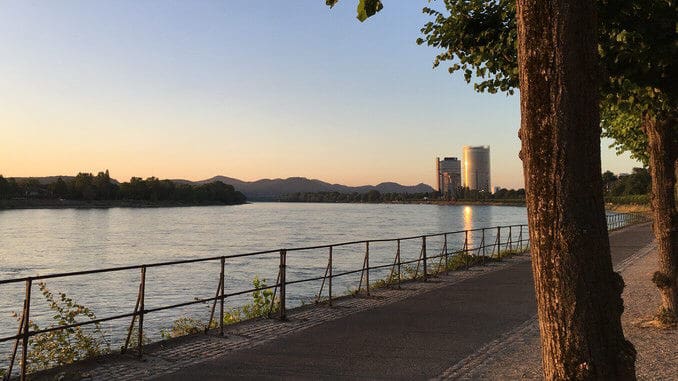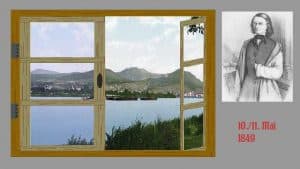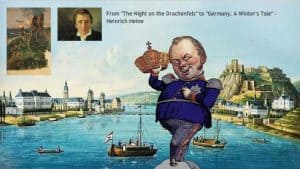
On the way from his sources in the Swiss Alps to the Northern Sea, “Father” Rhine flows through six countries: Switzerland, Liechtenstein, Austria, France, Germany, and the Netherlands. So, if we speak of “Father” Rhine, he has a lot of children and these countries, and I have a lot of brothers and sisters there.
A lot has always been written about “Father Rhine”: legends, poems, lyrics, and also texts for tourist offices. Yet, I found the most heartfelt words about the Rhineland in Heinrich Heine’s “Germany. A Winter’s Tale” and in the “Reminiscences” of Carl Schurz.

Carl Schurz’ “Reminiscences”
Schurz, the German-American statesman, was born in the Rhineland, he went to school in Bonn and later to Bonn university. Here he met his professor Gottfried Kinkel. They became friends, and leaders of the Bonn democrats in the revolution 1848/49. But the revolution failed, they had to flee and went to England. In 1852, Schurz and his wife Margarethe immigrated to the United States where Carl became a great statesman, and Margarethe opened the first kindergarten.
“.. a free outlook on the Rhine and the lovely Seven Mountains.. Now I could in the darkness distinguish only the outline of my beloved hills against the horizon.”
Carl Schurz, saying goodbye to Bonn, May 1849

Heine’s “Germany. A Winter’s Tale”
Heinrich Heine, the great poet from the Rhineland, was born in Düsseldorf. Since 1827, his work was censured, since 1833 it was forbidden in the State of Prussia, and thereby in his native Rhineland. Heine left Germany in 1831, to spend the remainder of his life in France. He only once came back, in 1843, and described his thoughts in “Deutschland. Ein Wintermärchen” (Germany. A Winter’s Tale).
Heine was so happy to see his “Father Rhine” again, greeted him joyfully and asked how he is doing. The Rhine, here an old man, was worried about the tensions between France on his left and the German states on his right bank.
“Welcome, my boy, that you still remember,
Renders me so pleased and so glad!
I haven’t seen you in thirteen years,
Meanwhile, my affairs have gone bad.
Germany. A Winter’s Tale, Caput V
“The Rhine is mine,” Heine wrote, by birthright. Yes, the Rhine is ours, his sons and daughters, and his friends all over the world, but he will never belong to chauvinists of any kind.

Be the first to comment